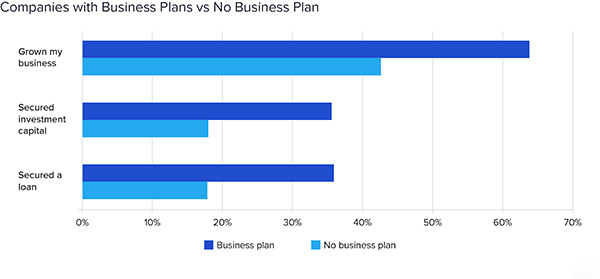
I’ve been a business owner for decades. Earlier it was run by my family, and now I’m running it. Throughout all these years, I noticed that you will always need an innovative strategy if you want your business to grow.
A case study mentioned that “In the ever-evolving landscape of modern business, staying competitive and relevant to market requires strategic foresight and proactive measures”. (ResearchGate: Strategies for Business Growth and Strength in the Future-From Good to Great)
So, in this article, I will tell you about how you can future-proof your business with innovative strategies. It’s a must-read for all small, medium, or large enterprises, so pay attention.
Technology is now the key element of our civilization, and every sector is advancing because of it. Businesses can also benefit from it in numerous ways. For example, you can automate manual tasks which will reduce time, manpower, and errors.
This is just one example, if you can utilize tools and systems you’ll be able to gain a competitive edge in the market. It will streamline your operations and decision-making will also be on point. If you want to overtake your competitors, this will help you with it.

I’ve been in the industry for a while, and your confidentiality matters the most. All your private data should be secured in all cases. And private content networks enable you to protect sensitive content.
You can easily create a safe network that will keep away all outsiders from accessing and breaching your system. It is a good addition to your venture as you’ll feel a sense of security.
With time, customers have modernized and their needs and wants have changed over time. And don’t forget that they are more informed now, so don’t even think about doing something unethical.
So, you’ll have to create or adapt to protocols for such consumers. Go for content marketing, reach out to potential buyers on social media, and give attractive ad campaigns and additional activities. These are just some of the things you can try and see if it works for you or not.
Without a good strategy, your corporation is bound to either fail or it will be just stuck. Look at the graph below, which shows the difference between companies with plans and no plans.

I’ve been part of the market for quite a long time now and let me tell you that if you make a sustainable business strategy then your brand reputation and image will be increased in no time. It’s a very powerful strategy.
People do care about the environment, and they will be attracted to a brand that is not harming the ecosystem. Reducing waste, consuming less energy, and sourcing sustainable materials will reduce your impact on nature.
Your employees are your biggest investment. You should at all costs invest in their betterment by organizing training programs, career advancement paths and mentorship opportunities. This makes employees feel valued.
A good workforce is the key to a successful company. Without it, you are nothing because there are things that AI and robots still can’t do and for that, you need skilled individuals who can offer the best service and facilitate your organization’s growth.

Adapting to change is unavoidable. A person or a corporation who can’t adapt to the innovation would not be able to succeed. Things were indeed different back then, and the previous generation managed to make things work.
But just because it worked for them, it doesn’t mean it will for you as well. This is why you have to keep up with the trends and come up with new strategies that include the utilization of everything new. Experimentation is never bad.
Without your customer, your business is nothing, this is why their experience must be your top priority while they are buying or availing of your services. You can take it to the next level with the help of the latest technology.
Turning to automated chatbots, personalized recommendations, 24/7 customer service, and more such things will strengthen the bond between you and your consumer. And trust me if you want to be stable in the long run you have to take care of your customer.
PRO TIP
Before you apply or create any strategy, just think about your goal what are you aiming for, and is this plan will ultimately assist you achieve it or not. A vision is important as it shows you the right path.
Diversification might sound like a tough task, as you’ll have to introduce new services and products that might work or might not. However, it is a great way of expanding your firm and distributing the risk.
So even if any of your products fail to perform well, others can easily cover that difference. Apart from that, a variety of products means more market presence as people will notice your brand.
These eight are the tried and tested strategies with success rate. But there are various other tips and techniques that you can try. Even better if you come up with your own based on the insights.
